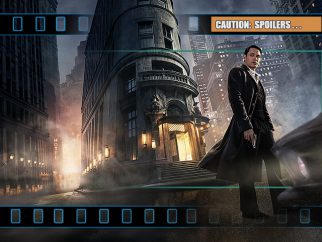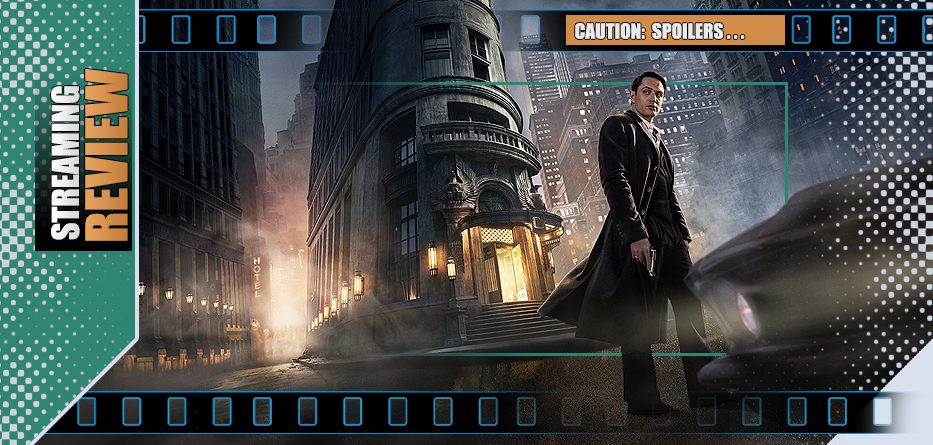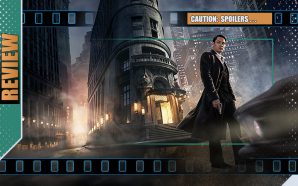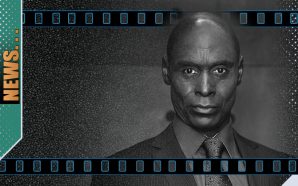The Continental is a hotel that has stood for years – but within its walls that are legacies of power, blood and tradition that could arguably outlast empires. It may be ‘neutral’ territory to the people who can afford to come through its doors, but everyone knows that such power can be fleeting unless it is guarded. So standing proud and quietly in the latter 1970s, its a personal embarrassment that its current ‘manager’, a man named Cormac, has just had a literally priceless item stolen from its inner sanctum. Cormac will do anything to get the item back – and others will do anything to obtain it.
Caught in the web of intrigue are two brothers, estranged by time and geography. Frankie Scott is the ex-soldier and enforcer who has stolen from Cormac and is only now realising what it may cost him. Winston Scott, living a more refined life in London, if no less questionable on the legal front , is ‘convinced’ to return to New York and help Cormac find Frankie. There’s no love lost between the siblings, but Winston doesn’t want to see his brother killed and sets out to find out what happened, why things went wrong and who is now involved in the mysterious item’s future.
But decades before Winston is destined to take control of the Continental, the brothers are about to learn some of life’s hardest lessons… and with this hotel there’s no room for error.
*spoilers*
From the earliest moments in The Continental, we’re following two brothers – Frankie Scott and Winston Scott – the latter sibling being the one who will eventually manage the hotel of the title in modern times. In the John Wick films, Winston is – of course – essayed by Ian McShane and, here, Colin Woodell does a decent job of playing him as a young man in the latter 1970s, one who was whisked away to Europe while his brother Frankie (Ben Robson) went to prison in his stead. This Winston has evolved into a European mover and shaker, a conman whose sense of style and ambition is tempered by minimising risks and controlling situations. In his world, the best mark is one who doesn’t realise he’s been taken until it’s far too late… or never knows they’ve been taken at all. Woodell lacks some of McShane’s distinctive optimum pitch, but there’s a beginning of an interesting through-line that existing fans will recognize – an assuredness that believes discretion is the better part of valour, but who should never be underestimated when backed into a corner. Robson’s Frankie is more reckless and overt but arguably not stupid: after serving as a soldier and suffering with what we’ll come to call PTSD he’s gone to work Cormac (Mel Gibson) – the man he holds responsible for many of his family’s woes – with a plan to bring him down from the inside. The trouble is Frankie completely underestimates Cormac’s resilience and while his heist (seen early in the episode) is ingenious and daring, the item Frankie steals actually is actually far more important and valuable to Cormac and a lot of other people than he thought… placing Frankie in a world of trouble and in a host of cross-hairs… and causing Winston to be drawn into the battlefield.
After Frankie’s heist, there’s some of the signature mayhem we might expect – Frankie fights his way out of the building with some bullet ballet and close-quarter fights that you might well be the ingredients that you’ve turned in to see. Yet despite subsequent flashes of violence, they are relegated to punctuation rather than subtext. In a mature-viewing sense and beyond those fisticuffs, there’s more a sense of urgency and foreboding than wall-to-wall warriors. And, yes, there’s some nudity and bad language in the mix but never so much that the production feels it is leaning on them as a supporting-wall, crutch or overt marketing tool.
There’s a large ensemble here, individuals and factions that we begin to see will start to pick sides (pragmatically, mostly their own) and set on a collision course. There’s dames to kill for, assassins to dodge, cars to covert and the kind of damp, neon grime that’s more stylised than authentic, but pays homage to the age of private dicks and public apathy. The cops and the crooks circle each other, more to keep the peace and stop things tilting too far in either direction, all done with deniability and a sense of faux Noblesse Oblige…
The Continental has that modern predicament of expectation vs. result, where the show can be judged two ways: by what you may want it to be and what it actually is. You’d expect any spin-off from the Keanu Reeves-led franchise to focus on many of the same things (and, indeed, the forthcoming story-adjacent feature – Ballerina,with sultry Anna de Amas in the lead – will surely serve many of those requirements). But here, if you’re going in looking for a John Wick annex, full of the same tone, pace, momentum and bravado then the chances are you may be a tad disappointed by the opener – gritty and tense yet nowhere near as full of unapologetic mayhem and momentum as you might consider essential for a action-franchise spin-off. But in a sense of world-building, it arguably fares better – less John Wick itself than an interesting (if largely uneven) mix of Sin City, Tarantino, a bit of Steven DeKnight’s Daredevil antagonism and shadow-work and – perhaps surprisingly – Pennyworth (the alt-history and shadowy, street-level story of Bruce Wayne’s butler’s younger years that recently ran for three seasons on epic).
Despite the sheer lack of franchise touchstones that you might expect to be included, there’s still a little too much going on in the opener, with story strands on both sides of the Atlantic and the jumping across different eras – so much so that it’s only in the back-half of the ninety-minute episode (the first of three) that things start to coalesce and we see the connections, alliances and imperatives building. There’s a large ensemble here, individuals and factions that we begin to see will start to pick sides (pragmatically, mostly their own) and set on a collision course. There’s dames to kill for, assassins to dodge, cars to covert and the kind of damp, neon grime that’s more stylised than authentic, but pays homage to the age of private dicks and public apathy. The cops and the crooks circle each other, more to keep the peace and stop things tilting too far in either direction, all done with deniability and a sense of faux Noblesse oblige.
The decision to cast Mel Gibson as the big bad, Cormac – a sadistic criminal kingpin sat a little too comfortably on his throne in the heart of the Continental hotel – is an interesting one that comes with both brickbats and bouquets. There’s an undeniable baggage that comes with the casting. Had this been a Gibson untarnished by off-screen behaviour, questionable attitudes and a temporary banishment to in the cinematic wilderness, then the ‘against-type’ factor might have been intriguing. However, since his return to the screen – no longer the A-Lister of old but still with a growling, glowering presence of sorts – he’s played a number of villains and this feels like a decent but less dynamic stretch than it might once have been. His Cormac is genuinely intimidating (he convinces a henchmen to throw himself out of a window as a mea culpa for failure – it’s either that or Cormac kills his family) yet fully aware that his actual physical power-base stretches only to the walls of the hotel… that he can only send envoys and assassins to do his bidding beyond them, lest he be targeted himself… but it always feels just an inch away from being a superhero’s cackling nemesis.
Despite the fact that very little Wick this way comes, here’s enough to like in and of itself in The Continental and its corridors are just as full of intrigue and power-games as ever. Sharper yes will note that the hotel’s exterior looks a bit different – changed by more than the years deducted from its framework. The truth is that the series wasn’t actively allowed to use the more iconic exterior featured in the films (It’s address as ‘1 Wall Street’ was actually the facade is that of the Cocoa Exchange Building, erected in the early 1900s). Unfortunately, an agreement couldn’t be reached to use the same building for the series, to the extent that even a studio-created duplicate wouldn’t be permitted and though not having the original ‘Continental’ in place is a little like having the Clarice series without being able to feature Hannibal Lecter, the action cuts between its exterior and the mean streets of New York swiftly enough that it doesn’t matter as much as it might.
As a world-builder and a setting of scenes (both physical and of agendas), this opening salvo of The Continental may not be John Wick but caters well for its clientele and always has rooms for improvement…
The Continental: From the World of John Wick is available on Peacock in the US and on Amazon Prime in other territories, with episodes released weekly on Fridays.

- Story9
- Acting9
- Direction9
- Production Design / VFX9











